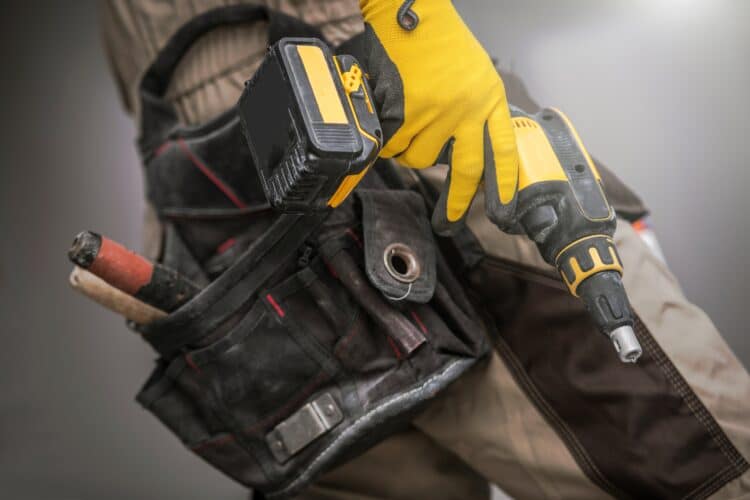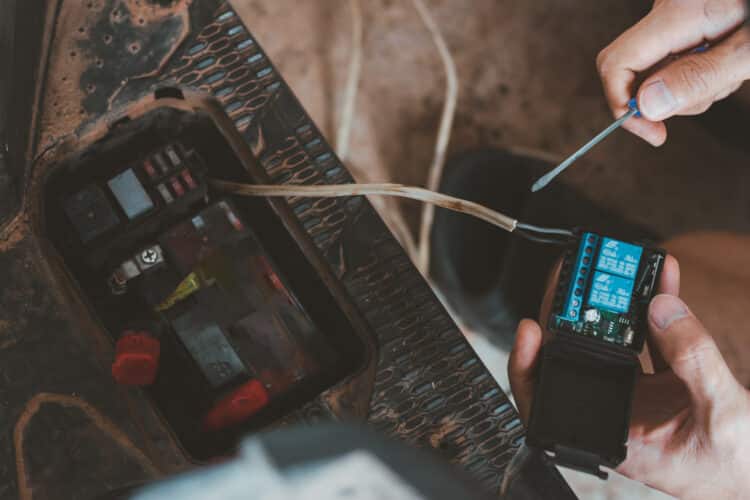Why You Should Never Store Batteries Loose in Your Tool Bag
Key Takeaways
- Storing loose batteries in a tool bag can lead to risks such as short circuits, leakage and corrosion, and accelerated battery drainage.
- To mitigate these risks, it is recommended to use battery cases or plastic bags to prevent contact between batteries, insulate terminals, and store batteries in a cool, dry place.
- Proper battery storage is essential to ensure battery longevity, optimal performance, and to minimize safety hazards and the need to replace damaged batteries.
Storing loose batteries in a tool bag may seem convenient, but it can actually pose several risks and dangers. From the potential for short circuits to leaks and corrosion, there are compelling reasons why you should avoid storing batteries loosely in your tool bag. In this article, we will explore the various risks associated with this practice and provide you with alternative solutions to ensure the safe storage of your batteries.
The Risks of Storing Batteries Loose in a Tool Bag
When batteries come into contact with each other or other metal objects, several risks can arise:
- Short Circuit: Loose batteries in a tool bag can easily touch each other or other conductive materials, leading to a short circuit. This can result in sparks, overheating, and potential fires or explosions.
- Leakage and Corrosion: Batteries contain chemicals that can leak out and cause corrosion when they come into contact with other metals. This can compromise the battery’s casing and terminals, leading to decreased performance or even complete failure.
- Battery Drainage: Storing batteries loosely in a tool bag can cause them to discharge faster than usual. This means that when you eventually need to use them, they may already be dead or significantly depleted.
These risks highlight the importance of proper battery storage to ensure their longevity and optimal performance.
Best Practices for Battery Storage
To mitigate the risks associated with storing batteries loosely in a tool bag, it is recommended to follow these best practices:
- Use Battery Cases: Battery cases are specifically designed to store and protect batteries. They provide individual compartments for each battery, preventing contact between them and reducing the risk of short circuits or damage.
- Plastic Bags: If a battery case is not available, you can use a plastic bag as a temporary solution. Place each battery in a separate bag to prevent contact between them and avoid potential short circuits.
- Insulate Terminals: If you are storing loose batteries in a tool bag, make sure to insulate the terminals by covering them with electrical tape or using battery terminal caps. This helps prevent accidental contact and reduces the risk of short circuits.
- Keep Batteries in a Cool, Dry Place: Temperature and humidity can affect battery performance and lifespan. Store your batteries in a cool, dry place away from direct sunlight and extreme temperatures.
By following these best practices, you can ensure the safe storage of your batteries and minimize the associated risks.
Conclusion
Storing batteries loosely in a tool bag may seem convenient, but it can lead to various risks and dangers. From the potential for short circuits and leaks to accelerated battery drainage, improper storage can compromise battery performance, pose safety hazards, and result in wasted money on replacing damaged batteries.
It is essential to store batteries in a way that prevents contact between them and minimizes the risk of short circuits, leaks, and corrosion. Whether it’s using battery cases or plastic bags, insulating terminals, or storing batteries in a cool, dry place, taking these precautionary measures will help ensure your batteries remain in good condition and ready for use when you need them.
Related Websites:
FAQs:
Q: What are the safety risks of storing loose batteries in a tool bag?
Storing loose batteries in a tool bag can lead to short-circuiting and potential fire hazards. The batteries can come into contact with metal objects, causing sparks and fires. Additionally, loose batteries rubbing against each other or other objects can result in battery leakage, which can cause chemical burns or damage to the tool bag and its contents.
Q: How does storing batteries properly preserve their efficiency and longevity?
Properly storing batteries helps maintain their charge and performance. Loose batteries can discharge more quickly when in contact with conductive materials. It is important to keep batteries in airtight containers or their original packaging. Additionally, using battery cases or holders can protect them from physical damage, which can lead to reduced performance or failure.
Q: What are the organizational benefits of not storing batteries loose in a tool bag?
Storing batteries in an organized manner provides time-saving advantages. Loose batteries can be difficult to find or distinguish from other items in a tool bag. By using organized battery storage, you can conveniently access the batteries during projects. Additionally, proper labeling or organization prevents accidental mix-ups with different battery types or sizes.
Q: Why is it important to not store batteries loose in a tool bag?
Storing batteries loose in a tool bag poses safety hazards, reduces battery efficiency, and hampers ease of access. Loose batteries can lead to short-circuits and potential fire hazards, as well as battery leakage causing chemical burns or damage. Proper storage helps maintain battery charge and performance while preventing physical damage. Organized battery storage saves time and avoids accidental mix-ups with different battery types or sizes.





